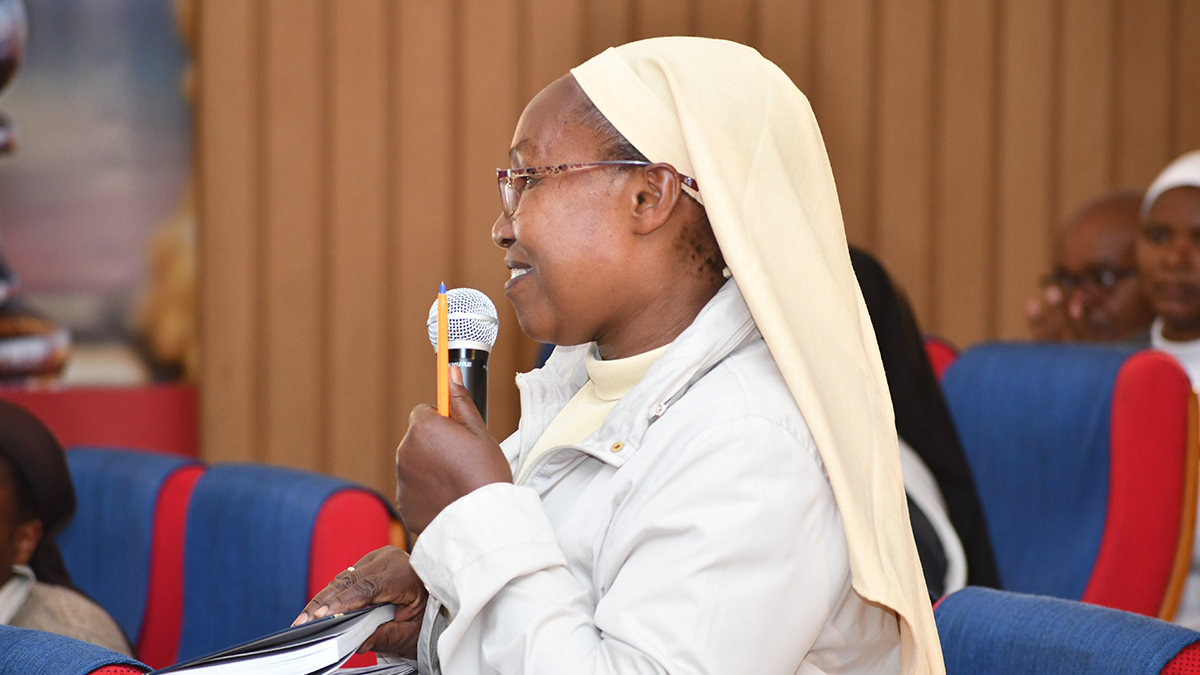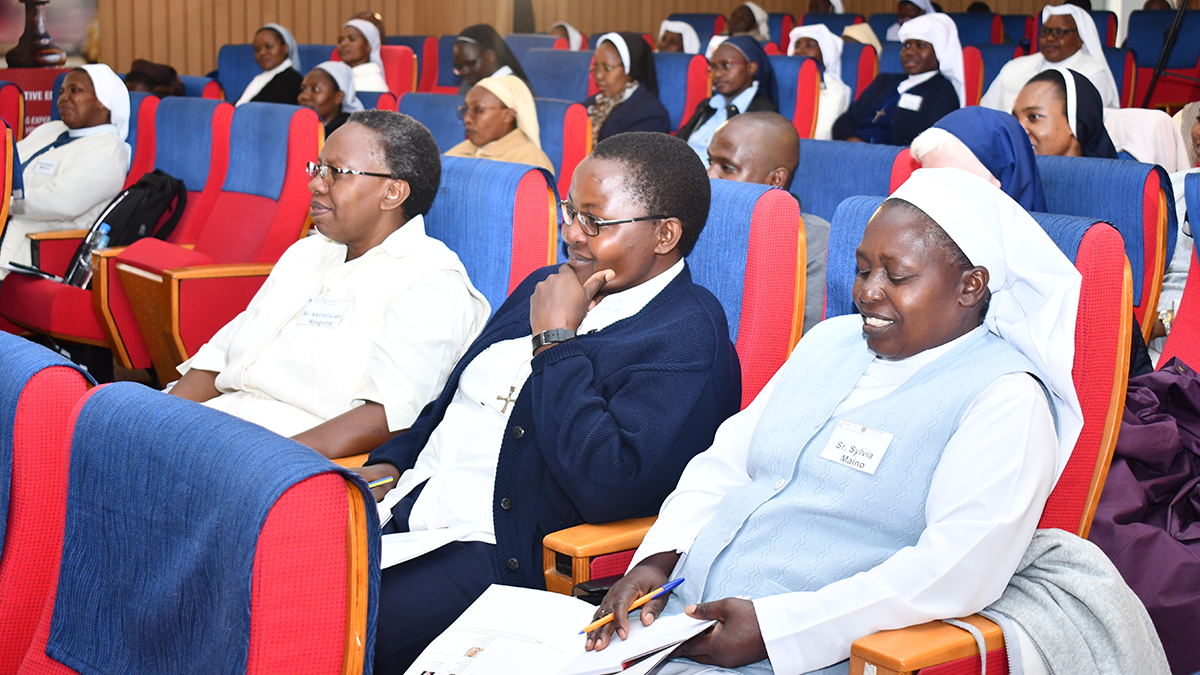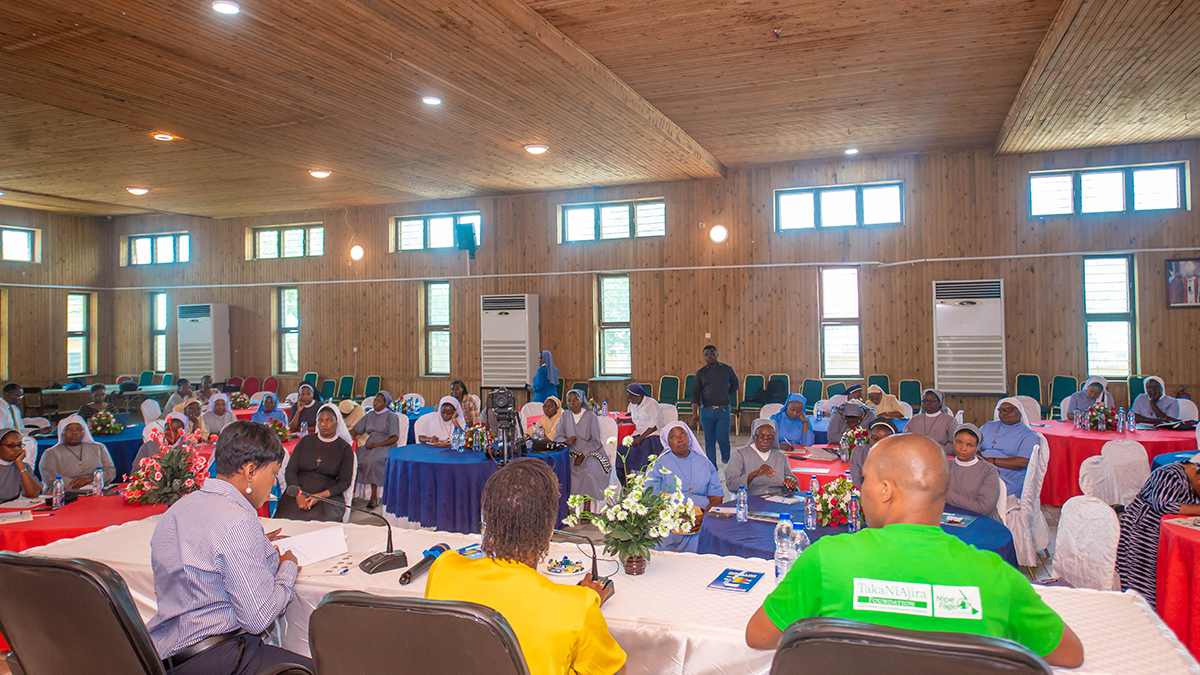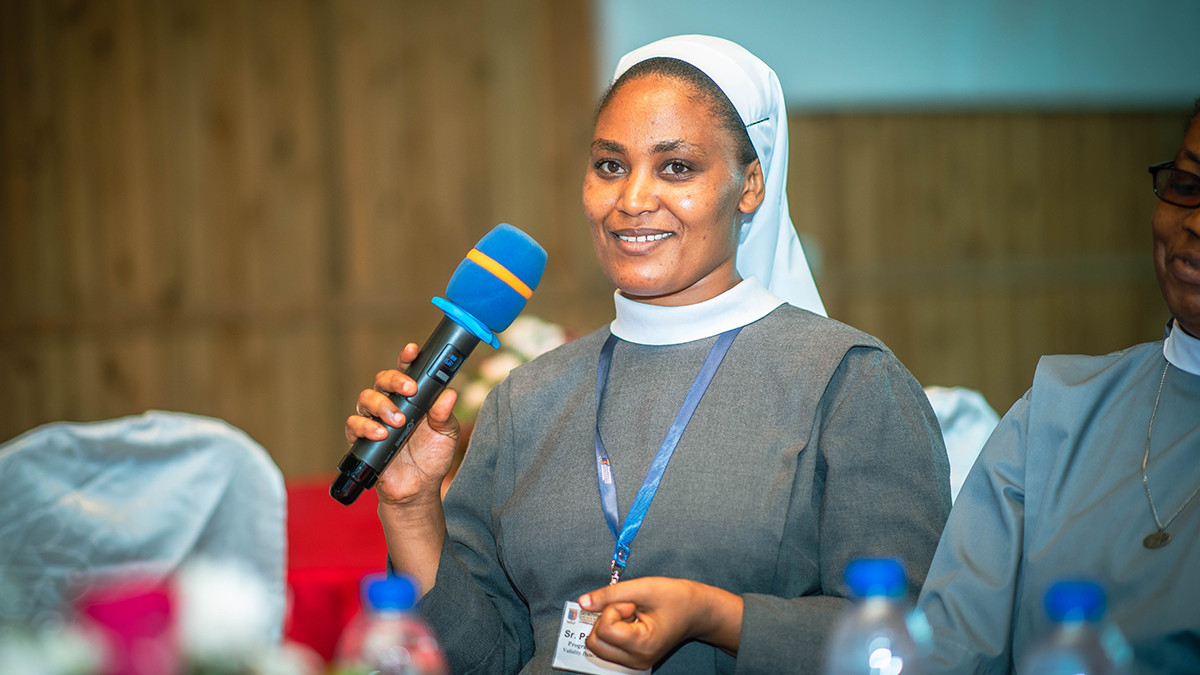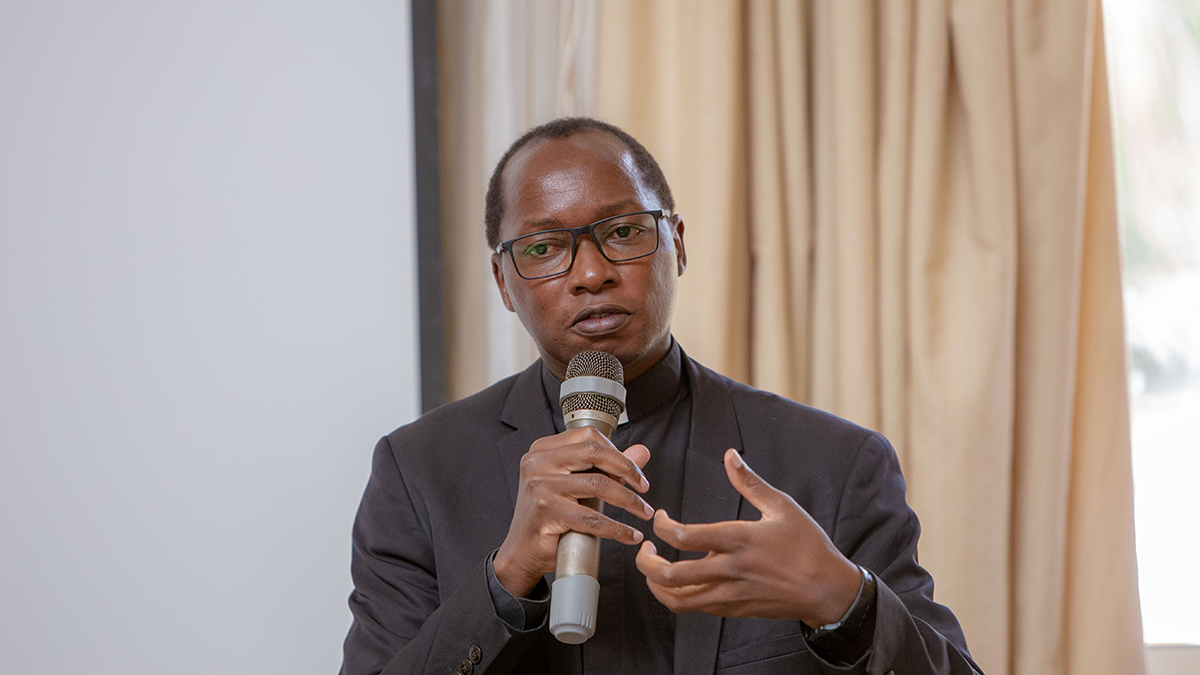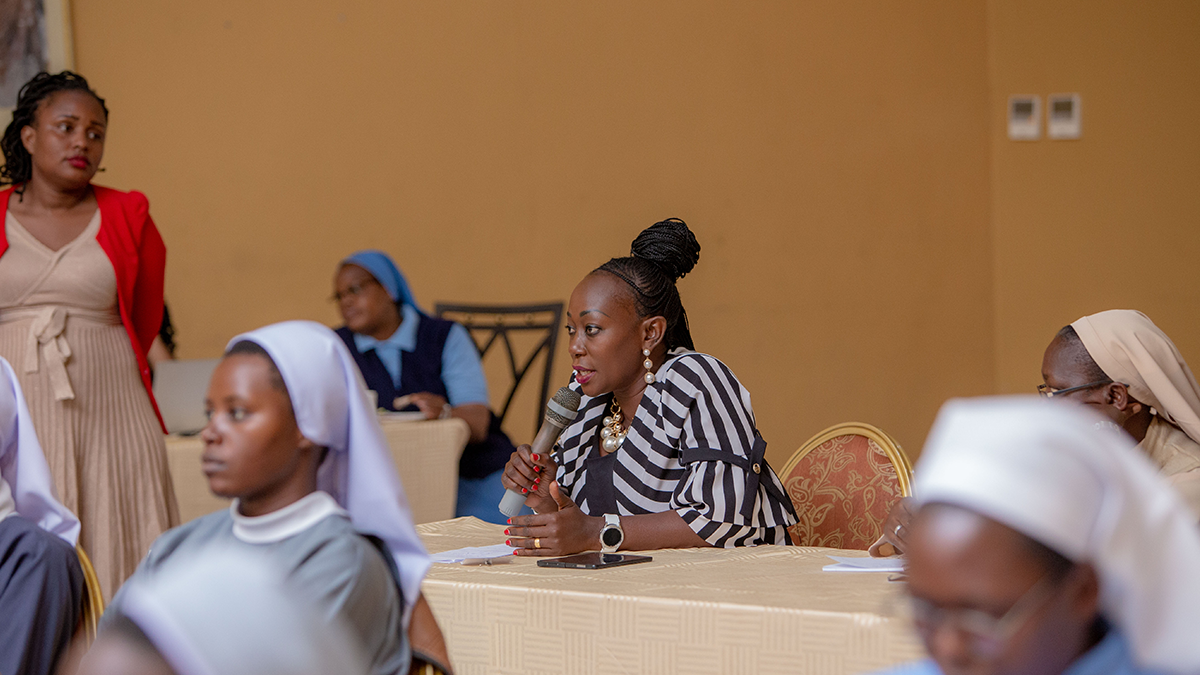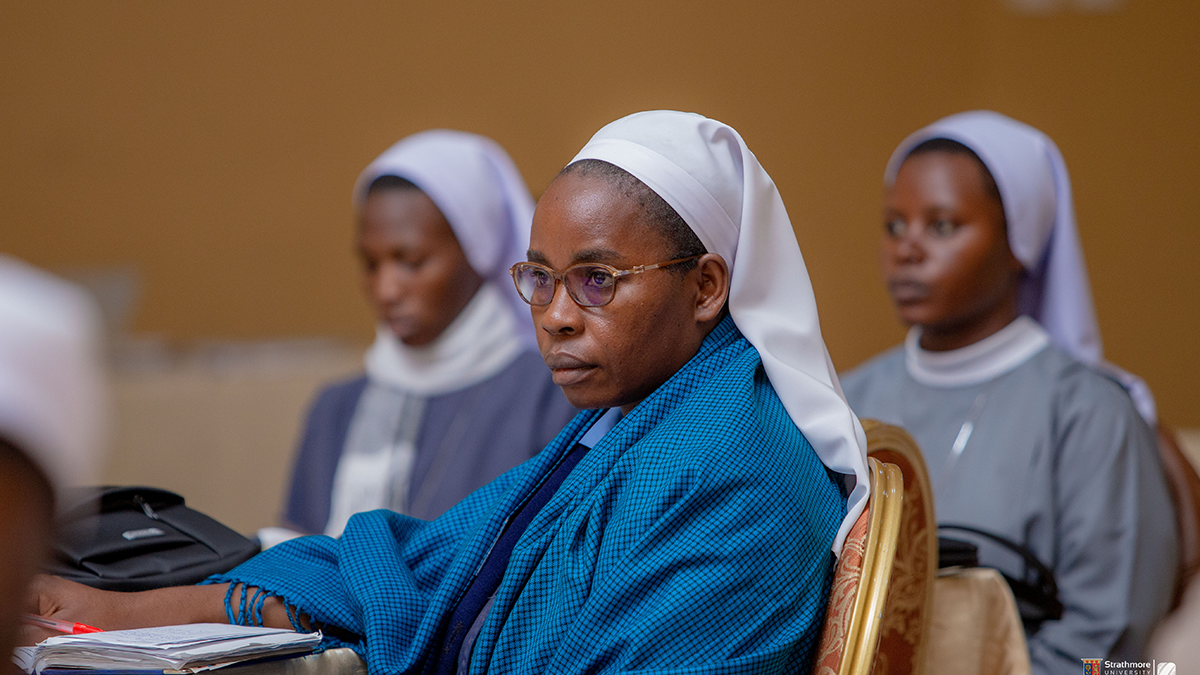Creating collaborative networks is one of the strategic pillars of the Sisters’ Blended Value Project – following an eventful year of capacity building through the Project Management Programme and the Social Enterprise Programme, Strathmore University Business School (SBS) together with the Association of Consecrated Women in Eastern and Central Africa (ACWECA) hosted the Inaugural Strathmore Social Entrepreneurship Conference in Tanzania, Uganda, Zambia, and Kenya between 24th November and 14th December 2022 to bring together sisters and entrepreneurs to discuss global trends and practices in social entrepreneurship.
Unlocking the Potential for Sustainable Social Enterprises
The theme of the conference sought to challenge delegates to build sustainable social enterprises in the current post covid socio-economic environment where many communities globally are affected by unemployment, war and conflict, rising cost of commodities, and climate change.
The covid-19 pandemic hit many industries hard including congregations that receive donor funding for daily operations and to further the missions of their social ministries – this challenge was identified in the baseline survey conducted by SBS and ACWECA that guides the implementation of the Sisters’ Blended Value Project. As the world faced an economic downturn, congregations were left with reduced donor funding. This reality created an opportunity for sisters to be proactive in their social enterprises, shifting their mindsets from an overreliance on funding, to innovative social enterprise development.
The Social Entrepreneurship Conference invited speakers with different perspectives on social enterprises to engage with delegates on the potential of leveraging social problems to create an impact within communities.
Balancing Charism and Social Entrepreneurship
Guest speakers and panelists ranged from sisters, priests, social entrepreneurs and civil servants to provide greater perspectives of the risks, challenges, and opportunities that social entrepreneurs face. Sister Judith Barnabas, Regional Director, Immaculate Heart of Mary Reparatrix, and Sister Lucina Ngény, Missionary Benedictine Sisters, Nairobi Priory shared stories of their social enterprises.
“I am happy that covid-19 happened”, stated Sister Barnabas as she shared her experience growing her coffee farm in Masaka, Uganda during the pandemic. The general slowdown during covid-19 allowed her to clear a plantation and establish a mother-garden.
After identifying the social and environmental issues of overfishing in Lake Victoria, affecting communities due to reduced revenue caused by increased competition amongst fishers, and environmental shortfalls from the depletion of vital underwater species in the lake.
With support from ACWECA and ARU, Sister Barnabas was able to start the project which now employs members of that community enabling them to make an honest living to support their families.
Since 2020, the farm has increased production with predictions indicating increased income and impact.
Subiaco Retreat Centre, operated by the Missionary Benedictine Sisters, Nairobi Priory, offers services in hospitality, agriculture, and healthcare. Sister Lusina Ng’eny shared her experiences as a poultry farmer and the endeavour to continually improve farming practices to produce healthy layers and broilers. Subiaco Retreat Centre is a self-sustaining centre in that the Missionary Benedictine Sisters can comfortably produce their own food without engaging external suppliers.
The centre is the home of Medicine at Your Doorsteps (MAYDS), a brand of herbal medicine with a wide catalogue that can treat several illnesses.
Tax Regulations and Social Enterprises
A challenge that social enterprises operated by consecrated women face is taxation. Tithes, offerings, and donations are tax exempt. However, this is not applicable for income generated by a social enterprise. Honourable Dickson Kateshumbwa, member of parliament Sheema Municipality, Uganda, highlighted the various strategies that social enterprises can use to get exemptions.
Distinguishing between “for sale” and “for service” may qualify a social enterprise for tax exemption; for instance, while importing medical equipment it is important to indicate the intended purpose of the equipment. No doubt, taxes are a challenge for many social enterprises and often unavoidable; to recover this income, Hon. Dickson urged delegates to look towards investment opportunities. “A social enterprise’s first objective should be to never lose money – the risks taken should be calculated”, Hon. Dickson advised delegates to have a moderate risk appetite while making investments. Investments could be buying new machines to begin manufacturing and value addition, or expansion and diversification.
Faith Without Action is Dead
The faith, spirituality, vocation, and social entrepreneurship sessions looked at the role of the religious in our communities and how to incorporate faith into social enterprises.
Father Ebnoit Dondo, a priest at Kasisi Agricultural Training Centre, Zambia, encouraged sisters to put themselves out there without fear of creating income-generating social enterprises.
Sisters are often seen as stewards and can sometimes feel conflicted about putting work before faith. How can a social enterprise operated by sisters be done without compromising on faith?
Father Paul Nsubuga stated that the religious’ first vocation is working towards uplifting and serving the marginalized to live with dignity. “Social enterprises act as an avenue for the religious to manifest their faith”, Father Nsubuga added that social enterprises allow social ministries to further their missions and that all social entrepreneurs should have an element of faith in their vocations.
Creating Greater Impact
For a social enterprise, the greatest goal should be to create a lasting impact in the communities they operate in. Many communities are affected by poverty, hunger, limited access to healthcare, and climate change among other challenges. Engineer Allen M. Kimambo founded Zaidi Recyclers Limited to mobilize waste pickers in Tanzania and to create a platform that incentivizes waste collection. Zaidi Recyclers uses technology to register waste pickers.
The social enterprise leverages technology to gain a wider reach and to conveniently engage with stakeholders.
ZaidiApp is available on the Google Play Store giving the social enterprise a deeper penetration into global markets, allowing them to reach an international audience interested in the industrial waste management service, from collection to recycling. This Greentech enterprise creates impact through employment opportunities by solving a widespread problem that contributes to the climate crisis.
In Uganda, Nakavuye Sarah Kiggongo, Head Teacher Masaka School for Children with Special Needs has established a social enterprise that serves the hearing impaired. The school started out as an institution that provided training in basic skills and handwork for the deaf i.e knitting, braiding, baking, etc. with the goal of making job makers instead of job seekers. The school has now established a vocational centre to serve more hearing-impaired youth.
Article Written by Katherine Keango
These social enterprises are rooted in their purpose giving them a unique competitive advantage while serving the marginalized and disadvantaged members of the communities they operate in.
Better Together
The saying “two heads are better than one” applies greatly to the growth and expansion of social enterprises. Antony Mbandi, Head of Partnerships and Alumni Relations, SBS, has brought together several meaningful partnerships that created quantifiable value and impact.
Partnerships can come in various forms; consider a social enterprise without a functional digital presence – a suitable partnership could be with an enterprise with experience implementing service provision and building awareness through digital platforms. By sharing management and other operational duties, partnerships reduce risk by bringing in experience, broadening networks to reach more people, and reducing supply chain issues.
Share This Story, Choose Your Platform!
Your journey to business excellence starts here. Subscribe today and be at the forefront of innovation and leadership.


